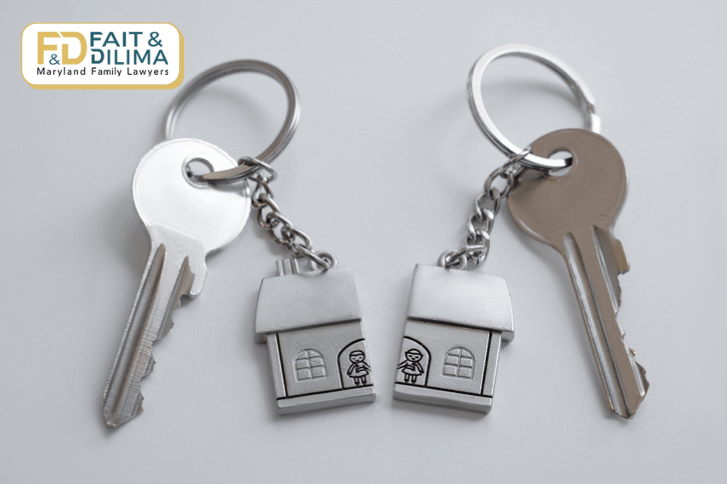Not every divorce is resolved through negotiation. Sometimes, divorces go to trial. The idea of testifying often causes anxiety and concern. It is likely that you have never testified in court before. Knowing what to expect can ease anxiety. The court will place you under oath. You will be questioned by your attorney, known as direct examination. Then you will be questioned by the other attorney, known as cross-examination. Direct and cross examination goes back and forth for however many rounds it takes to fully document the issues on the record. Here are other things to know and do to lessen anxiety.
Work Closely With Your Attorney
This is the most important piece of advice in any divorce. Your attorney prepares you for your trial, including testifying. Practice testifying with your attorney. Practice both direct examination and cross-examination. Do not memorize your testimony. At its best, direct examination feels like a conversation between two people.
Discuss with your attorney the issues most important to you. This allows your attorney to emphasize the appropriate issues during the trial.
Tell your attorney everything. Attorneys can deal with bad facts if they are aware of them. Do not surprise your attorney from the witness stand.
Discuss with your attorney what clothes you wear. You want to be comfortable, but this is not the time for cutoffs and a t-shirt.
Exhibits
Your attorney has likely prepared exhibits for the judge with information about values of assets, income, budgets, and other important information. Do not be afraid to ask if you can refer to the exhibits when you are testifying. Nobody expects you to memorize all of the relevant numbers before you testify. Do not rely solely on your memory. Accurate testimony is vital.
Drive to the Courthouse Before Your Trial
Drive to the courthouse before the day of your trial so you know where it is and how to get there. Drive at the same time you will need to leave for your trial. This gives you the exact amount of time your drive will take. Look for parking. How far is parking from the courthouse door? How much will it cost? Can you use a card or do you need cash? Trials are already nerve-wracking, don’t add being late or a white-knuckle drive to the courthouse.
Know Where the Bathrooms Are
If possible, go into the courthouse when you drive to the courthouse ahead of time. Learn where your courtroom is going to be. Find the nearest bathroom, water fountain, coffee shop, vending machine, and anything else you think you might need. Smokers, identify the smoking area.
Listen to the Question when Testifying
Listen to the question being asked. Answer that question — and only that question — with the shortest answer possible and stop talking. Do not provide additional explanation. Particularly during cross-examination, do not say, “Yes, but…” Your attorney questions you again after the other attorney. He or she cleans up your incomplete answers. Do not volunteer additional information. For example, if the attorney asks whether you own a certain stock, say “Yes,” or “No.” Do not say, “No, I do not own that stock, but I did five years ago.”
Do Not Try to Answer a Question You Do Not Understand
Do not guess what the question means if you do not understand it. Ask the attorney to repeat or rephrase the question. This also applies to compound questions. Ask the attorney to break down the question if it is too long and complicated.
Take a Moment
Before answering, take a breath. This gives your attorney a chance to make any appropriate objections. It also gives you time to consider your answer. Further, it gives the court reporter a chance to catch up after the question has been asked. Answering questions quickly does not help your case. Failure to think before you answer can hurt your case.
Do Not Get Angry
The other attorney may ask you questions that upset you. A divorce is very personal and emotional. Do not get angry during testimony. Complain to your friends later, not in court.
Remain Respectful and Calm
Treat the other attorney with respect, even when you feel he or she is not respecting you. Similarly, respect the court. If an objection is made during your testimony, wait for the court to rule. Do not try to squeeze in your answer.
Be Honest When You Testify
Never lie during testimony. Some answers may hurt your case. Your attorney already knows that information and has a plan for dealing with it. Lying on the stand under oath is perjury, a crime. Also, it upsets judges. The judge will decide your case. You want the judge neutral, not upset with you.
Avoid Absolute Words
Avoid “never,” “always,” “all,” and other absolute words. A good attorney will be able to find examples proving those terms inaccurate. Those words do not advance your case and make you look like you are exaggerating.
Avoid Crutch Words
Do not use words like, “maybe,” “probably,” “I believe,” or “if I had to guess,” for example. Those answers sound vague and tell the judge you are unsure of your answer. Instead, answer the question directly. If you know the answer, answer the question. Much like absolute words, crutch words negatively impact witness credibility.
If You Do Not Know an Answer, Say So
It is acceptable to say “I do not know’” or “I do not remember,” if that is the truth. Do not guess. You know what your attorney is going to ask you and you prepare for those questions. Your attorney knows some of the questions the other attorney is going to ask, but not all of them. You cannot prepare for every possible question. It is okay if you don’t know the answers to every question.
Do Not Argue With the Lawyer
Lawyers argue for a living. You will probably lose the argument. It throws you off your game. It also costs you credibility with the judge. If a question is appropriate, the judge will order you to answer it. The lawyers know the rules and how the judge enforces them. You do not.
If You are Considering Divorce
If you are considering a divorce. Contact the lawyers at Fait & DiLima. Our attorneys focus exclusively on family law. We have offices in Rockville and Fredrick to meet your family law needs.








